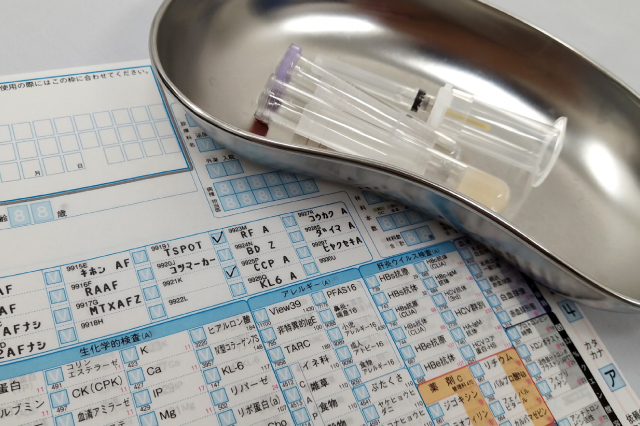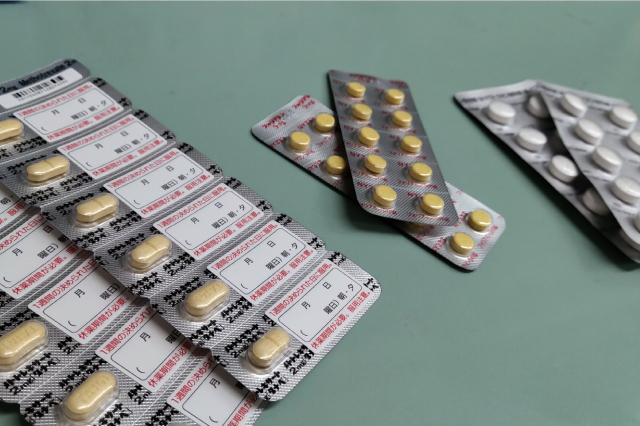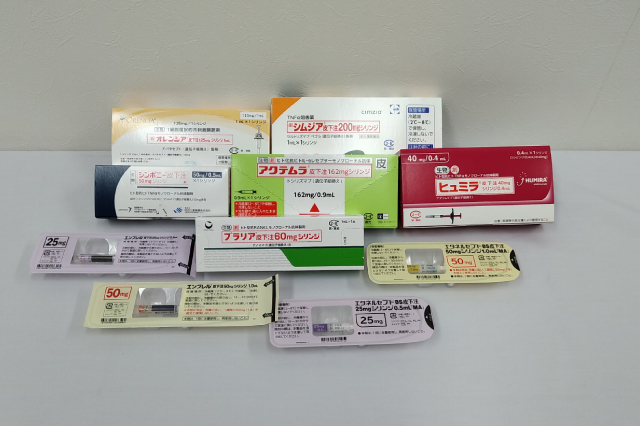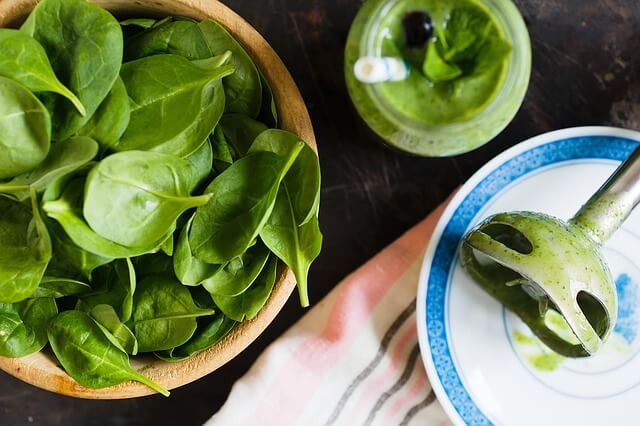Relationship between RA and diet
Many rheumatoid arthritis patients lose their appetite and weight due to the pain. In addition, inflammatory substances (inflammatory cytokines) tend to break down proteins in the body, resulting in a loss of muscle mass. In this article, I will discuss the key points of diet to maintain physical strength and muscle mass and prevent complications.
I will also introduce some foods that are said to control the runaway immunity that causes rheumatism.
Fish for protein.
Patients with rheumatoid arthritis who have joint pain tend to lose muscle strength due to lack of exercise. When you are not in pain, you should exercise to the extent that you do not feel joint pain the next day, and take in protein to build muscles.
Fish, especially omega-3 unsaturated fatty acids such as sardines, saury, and mackerel, are known to reduce inflammation and cardiovascular damage, so it is recommended to take them.
In addition, as mentioned above, chronic inflammation in rheumatoid arthritis causes proteins to be broken down and metabolized more easily. It is known that a decrease in the amount of protein and albumin in the body lowers the immune system and makes the body more susceptible to infections such as pneumonia.
Especially for the elderly, try to keep your serum albumin level above 4g/dl to prevent pneumonia.
Calcium and Vitamin D
In rheumatoid arthritis, joints become brittle and osteoporosis is more likely to occur due to lack of exercise and long-term use of steroids. In order to prevent osteoporosis and bone fractures, it is important to take calcium.
Vitamin D helps in the absorption of calcium, so it is important to take it as well.
Dairy products such as milk and cheese (choose low-fat ones if you are obese or have hyperlipidemia), small fish, green and yellow vegetables such as spinach, and seaweed such as hijiki contain high amounts of calcium, while fish and mushrooms contain high amounts of vitamin D.
alcohol
It has been reported that drinking alcohol can prevent the onset of rheumatoid arthritis. However, for patients who currently have rheumatoid arthritis, it is recommended to avoid excessive drinking due to the combination of anti-rheumatic drugs.
MTX (rheumatrex methotrexate), the core anti-rheumatic drug, is metabolized by the liver, and excessive drinking can put a strain on the liver and cause side effects. If you are a daily drinker, it is recommended that you avoid drinking alcohol on the day you take MTX and take a liver holiday.
Folic acid
When taking MTX internally, it should be combined with an appropriate amount of folic acid (Foliamine) to prevent side effects, but too much folic acid will reduce the effectiveness of MTX for rheumatism.
Be aware that some supplements, dietary supplements, and green juices contain high amounts of folic acid.
Folic acid is also found in many foods (spinach, asparagus, broccoli, edamame and other legumes, eel, liver, etc.), but the amount of folic acid is much less than the amount used in medicine, so there is no need to refrain from eating them.
dietary fiber
Recent studies have revealed that patients with autoimmune diseases such as rheumatoid arthritis suffer from "abnormalities in intestinal bacteria
The function of the intestines is not only to digest and absorb food, but also to control the immunity of the whole body with the help of immune cells and intestinal bacteria concentrated in the intestines.
T-regs (suppressive T cells) are special immune cells that calm overactive immunity and are produced in the intestines by intestinal bacteria feeding on dietary fiber.
In the intestines of patients with autoimmune diseases and allergies, the ability to produce T-regs seems to be weakened.
It has been reported that ascetic monks who eat vegetarian food rich in dietary fiber have better atopic dermatitis and allergies, so it is advisable to take dietary fiber actively.
Development of Rheumatoid Arthritis and Diet
It has been reported that diet may also have an effect on the development of rheumatoid arthritis.
People who consumed more fish fat, olive oil, fruits, cooked vegetables (excluding raw vegetables), and cruciferous vegetables had less rheumatoid arthritis.
These polyunsaturated fatty acids and antioxidant vitamins are said to have anti-inflammatory effects, and it is speculated that this is why they are less likely to develop rheumatoid arthritis.
The cause of rheumatoid arthritis is still unclear, but it is thought to be caused by a combination of genetic factors (constitution) and environmental factors, so diet may not have a large influence on the onset of the disease.
However, if you have many close relatives with rheumatoid arthritis or high levels of rheumatoid factor, you may be wondering, "What can I do to prevent this? However, if you have many close relatives with rheumatoid arthritis, or if you have high levels of rheumatoid factor, it is a good idea to consume the above foods with this in mind.
List of foods good for RA
The following foods have been reported to have a variety of beneficial effects, including lowering inflammatory cytokines, reducing stiffness and pain in joints, and lowering oxidative stress.
KHANNA, S., JAISWAL, K.S., AND GUPTA, B. FRONT. NUTR. | DOI: 10.3389/FNUT.2017.00052:THIS IS A LIST OF FOODS AND THEIR POSSIBLE EFFECTS ON RHEUMATOID ARTHRITIS SYMPTOMS AND PROGRESSION.
Study lists foods for fighting rheumatoid arthritis symptoms and progression. https://www.sciencedaily.com/releases/2017/11/171108092351.htm
Fruit
- DRIED prunes
- grapefruit
- Grape
- blueberry
- pomegranate
- mango
- banana
- peach
- Apple
Reduces inflammatory cytokine levels, oxidative stress, and protects against bone and joint destruction
Whole grains and cereals
- wheat
- Rice
- Oats
- Rye
- barley
- Millet
- Sorghum
- Canary seed
Reduces inflammation
oil
- Olive oil
- Fish oil
- Borage seed oil (capsule)
Relieves tenderness, stiffness and pain in joints
Dairy products
- Yogurt
Reduces inflammatory cytokine levels, oxidative stress, joint tenderness and swelling
Leguminosae
- Black soybeans
- Black and green beans (bean sprouts))
Reduces oxidative stress
Herbs
- Boswellia serrata
- Ashwagandha
Reduces inflammatory cytokine levels, collagen destruction, joint stiffness and pain
spices
- ginger
- turmeric
Protects against extra-articular complications, Reduces inflammation
tea
- Green Tea
- Basil tea (Tulsi tea)
Reduces inflammatory cytokines Prevents bone and cartilage destruction
Are you aware of the effects of rheumatism on blood vessels?









